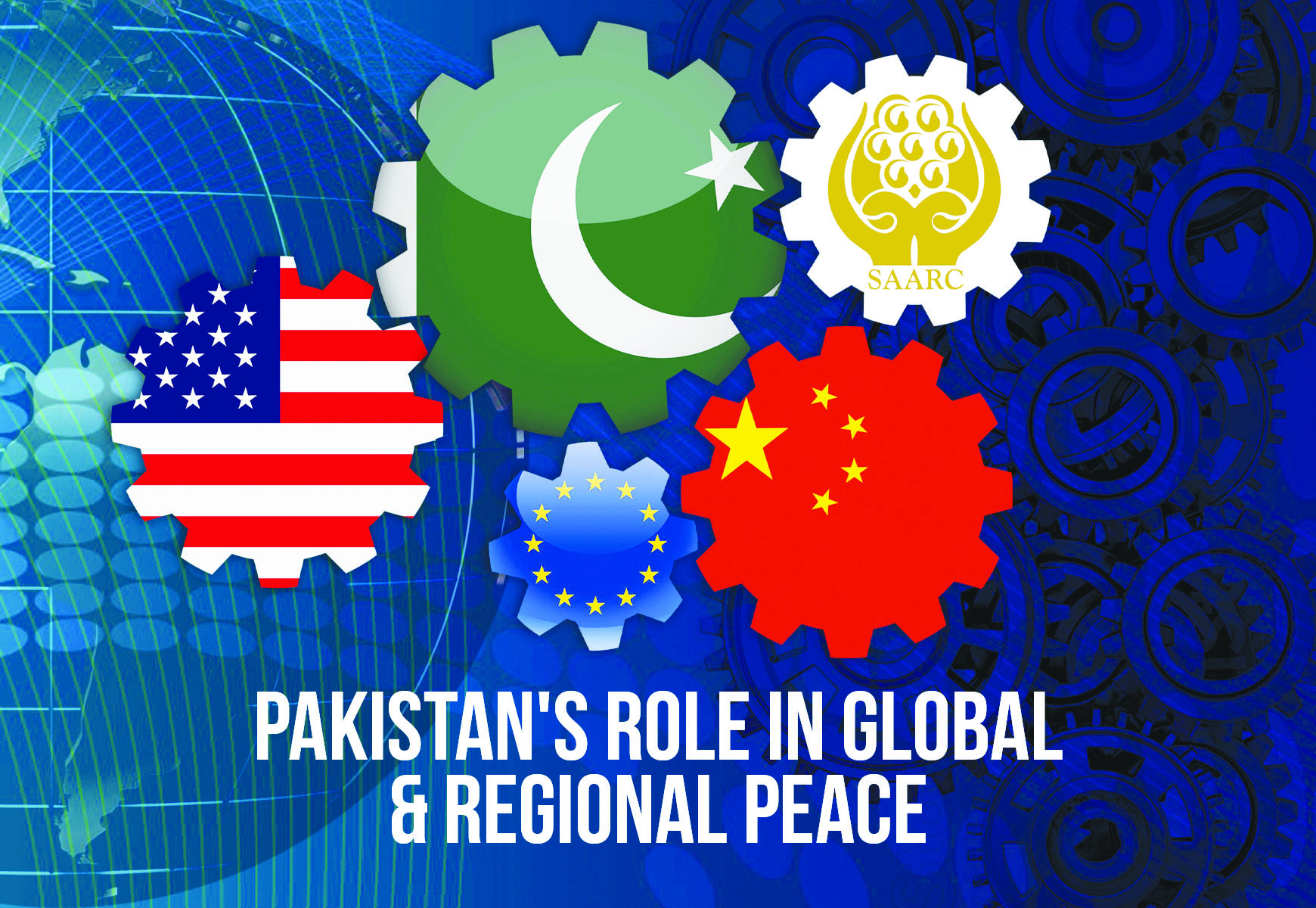
How Pakistan is coming to terms with global realities
Caught off-guard when under Chinese patronage, the two Middle Eastern giants Saudi Arabia and Iran buried their mutual hatchet for good; for the client states like Pakistan it was a new reality; that
 www.pakistantoday.com.pk
www.pakistantoday.com.pk
Caught off-guard when under Chinese patronage, the two Middle Eastern giants Saudi Arabia and Iran buried their mutual hatchet for good; for the client states like Pakistan it was a new reality; that too a shocking one. The recent flurry of activity, coupled with a ‘painful courtship’ with the western financial system, meaning the IMF, Pakistan is opening up to the previously prohibited domains in foreign policy; all suggest that the country establishment seems to be coming to terms with ground, rather global, realities.
The gradual delinking of the Saudi defence establishment from the American axis; talks of joint Iranian-Saudi patrolling of the Persian Gulf, was the first takeaway from the change. Coupled with that, a more than warm reception meted out to the Iranian Hajj pilgrims in the Holy Cities, coupled with a breathing space for traditional Iranian allies the Shi’a Muslims in visiting the famous Medina cemetery all point out to changing patterns in the domain of foreign policy.
In that environment, the Pakistani establishment, which has been extra careful, as regards warmth with the anti-USA in the Middle East, has been caught by surprise. Pakistan like Turkey and Iraq has been an energy-deficient economy. While the latter two states have been straightforward in their dealing with the Americans, regarding the imperative of dependence on Iranian natural gas reserves, Pakistan has been more than faithful towards seeking Saudi or US approval for the same.
That refusal to avail the Iranian offer has its consequences for the Pakistani economy; whose POL bill inflated naturally, when the so-called CNG-fitted vehicles have no other option but to run the engines on petrol. Learning a bit from that blunder, there have been efforts to buy relatively cheap Iranian electricity for border areas of Balochistan.Pakistan will really has to catch up with the new global realities, given the fact that it is not proverbially sitting on the wrong lorry, train, flight. Failing which it would only be buying further dire straits and disgrace for itself
Here it is ironic to observe that while the ‘compromised’ journalists following the establishment line have been trying to pit the Shaheed Beheshti port in Chahbahar against the Gwadar port in Pakistani Balochistan, the Pakistani port city is dependent upon that same Iranian electricity to get the show running.
The winds of change can be felt the way the military contacts with the Iranian defence establishment spearheaded by the Islamic Revolutionary Guards Corps (IRGC) seem to be the preferred line of action for the dominant decision makers in Pakistan.
A month ago, the establishment of joint markets in the border areas close to the border between the Pakistani and Iranian Balochistan had been indicative of that change of heart. Likewise, the visit of the top man in the army; as well as contacts between the respective Navies and Air Force as well as diplomats, all indicate a new defence paradigm. The reasons for that change of heart rest in the fact that the other option available for Pakistan can be the prohibited path; tying up with Israel.
Ever since the Trump years’ build-up against Iran for a possible military strike with the connivance of Saudi Arabia has been on the table. However, the Biden years since 2021 have taken the steam out of that option gradually. The recent emergence of Chinese diplomatic initiatives have indirectly frustrated for the time being the American and Israeli calculations. In that scenario, a hypothetical view of the situation; gives Pakistan two options: one of tying up with the Chinese ascendency or drifting towards the USA.
The on-ground situation suggests that Pakistan is apparently testing waters on both the fronts; yet its tilt seems to be towards the Chinese option. The recent flurry of visits between the Iranian and Pakistani military officials and the inroads the PAF has been able to make with the Iraqi counterpart strongly suggest Chinese encouragement.
It may be recalled that the generally pro-American Baghdad was the recipient of 36 F16s during the high time of campaigns against ISIS/Daesh. The intent has been to belittle the ground offensives against Daesh by Iranian aligned groups and give more weightage to the Iraqi efforts; and consequently cultivate the political package accrued out of it. Recently, there has been talk in the media about what can be called American disinterest in providing the Iraqis the required technical assistance. The Iraqi air force is practically experiencing the same sort of American behaviour, which the PAF faced after the 1965 War, forcing Pakistanis to look towards French and Chinese sources of weapon systems.
The recent news in the media about Iraqi Air Force readiness to buy Pakistani-Chinese joint production JF-17 Thunders strongly points towards the fact that Chinese have patted Pakistan on the back for that. Given the fact that Pakistan is able to overcome its foreign exchange issues with the help of massive defence exports, means that the IMF/USA/Abraham Accord options might get weaker with the passage of time. Of late Pakistan has already sold the propelled trainer aircraft to the Iraqi Air Force as part of the ongoing initiative.
Here it might be too early to jump to conclusions with regard to the foreign policy options at hand for Pakistan. For a country like Pakistan, deeply embedded in the Western financial system, trained in the Western protocols for defence as well as financial system linkages, it can be a big step if the country decides for a big disengagement. The IMF recent report does not traditionally touch on Pakistan tax collection capabilities; it has its reservations on export refinance facilities’ espoused by the central bank.
Pakistan’s current weak economic profile has the advantages and vice versa for rolling into any of the two camps. The USA having invested in Pakistan as it did with many states like Venezuela, will certainly prompt the USA not to let Pakistan slip out of its orbit. In other words, it means the USA has no presence in the region against what it can call growing Chinese and Russian influence in it.
Given the black and white drawing of the battle lines between the waning dollar regime led by the US-based capitalist regime capital and the alternate narrative led by the Chinese, Russians and Iranians are already drawn, the lineup prophetically illustrated two months back in the Wall Street Journal cover; showing Russian and Chinese leaders helping Iran’s Khamenei to scale down the proverbial staircase. The options for non-committal fence watchers like Pakistan are going to be to decide where they need to be. The month-old remarks by Hina Rabbani Khar dated June 23, 2023, that Pakistan cannot leave the western sphere for the Chinese one; apparently speaks of Pakistan non-aligned posture, it also indicates the yearning within the ruling elite, inclusive of those currently out of favour, to link up with the USA, as were Ayub, Zia and Musharraf.
Recent year’s political developments within and international developments elsewhere have reinforced the fact that Pakistan might not have the previous position in the eyes of the Chinese establishment as it used to. China’s Middle Eastern and Iran-specific initiatives suggest that Pakistan is one of the connecting states for the Chinese trade initiative, but not the prime one, which was once sought. The hybrid experiment within, when the PAF, USAF and RSAF jointly exercised in central Punjab for imaginary Iranian targets in 2020 through 2021 are a far cry from the Saudi Navy contemplating joint cooperation with Iranian Navy in the aftermath of China led mending of fences in 2023; leaving Pakistan in the literal cold.
Pakistan will really has to catch up with the new global realities, given the fact that it is not proverbially sitting on the wrong lorry, train, flight. Failing which it would only be buying further dire straits and disgrace for itself.
Last edited:






